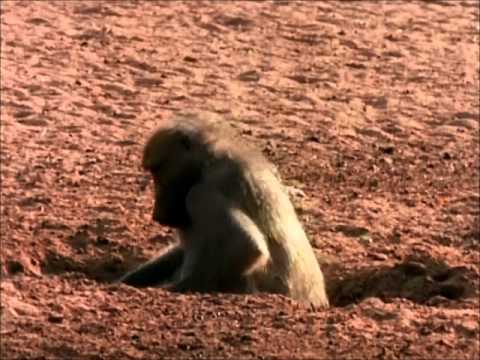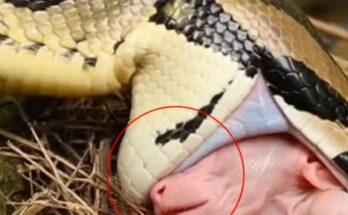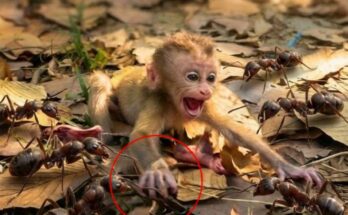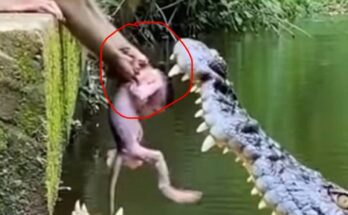
For weeks, the dry season had gripped the land. The once-mighty river had shrunk into narrow channels and shallow pools, concentrating the fish, birds, and other prey into smaller areas. The crocodiles, masters of patience, had been waiting for this moment. Their instincts told them that soon, a feast would come.
As the sun rose higher, movement rippled through the water. A herd of thirsty antelope cautiously approached the shrinking riverbank, their hooves sinking into the mud. In the distance, wading birds pecked at the shallows, and a few warthogs snuffled along the edge. The crocodiles, nearly invisible against the murky water, remained still. They had learned over countless generations that patience brought reward.
The first strike came fast—so fast it seemed the water itself exploded. A massive crocodile lunged, jaws snapping shut with bone-crushing force around an unsuspecting antelope. The other animals bolted, splashing and stumbling to safety, but the water erupted again as more crocodiles surged forward. The feast had begun.
What followed was both brutal and mesmerizing. Crocodiles twisted and rolled, dragging their prey beneath the surface. Smaller ones fought over scraps, their deep, guttural growls echoing across the river. The water churned with movement, stained with mud and foam. This was not just a hunt—it was survival, an ancient ritual played out for millions of years.
For the crocodiles, the feast was more than just a meal. It was a preparation for the long, lean months ahead. The dry season meant less water, fewer fish, and greater competition. Every bite they took now could mean the difference between strength and starvation when food grew scarce.
As the chaos subsided, the crocodiles settled back into the shallows, each guarding their portion. Some floated motionless with their jaws half-open, letting small fish and scavengers clean their teeth. Others dragged their prey into the shadows beneath overhanging roots, away from the eyes of rivals. The river fell quiet again, save for the occasional splash of a tail or the low rumble of a satisfied reptile.
Above them, the sky began to change. Clouds gathered on the horizon, heavy with the promise of rain. The crocodiles did not know it, but this might be the last great feast of the season—and for some, perhaps the last of their lives. Changes in the river’s flow, brought by shifting weather patterns and human activity, had made their hunting grounds unpredictable. Dams upstream reduced water levels, while fishing nets entangled and killed the smaller prey they relied on.
The oldest crocodiles remembered times when the river teemed with life year-round, when the feasts came often and the hunger was short-lived. Now, they fed heavily while they could, each meal a gamble against an uncertain future. The feast that had just taken place was not merely an event of the day, but a moment in a much larger struggle—the struggle of predators in a world that is changing faster than they can adapt.
As rain finally began to fall, the river stirred once more. Droplets tapped the surface, breaking the mirror-like reflection. The crocodiles sank deeper into the water, their eyes the last thing to vanish beneath the ripples. Somewhere downstream, the remains of their feast drifted away, feeding fish, birds, and countless smaller creatures. In the endless cycle of the wild, even the leftovers of the apex predator became sustenance for others.


